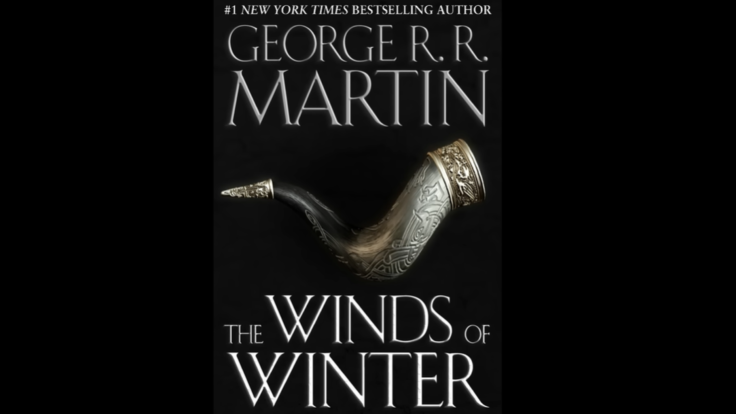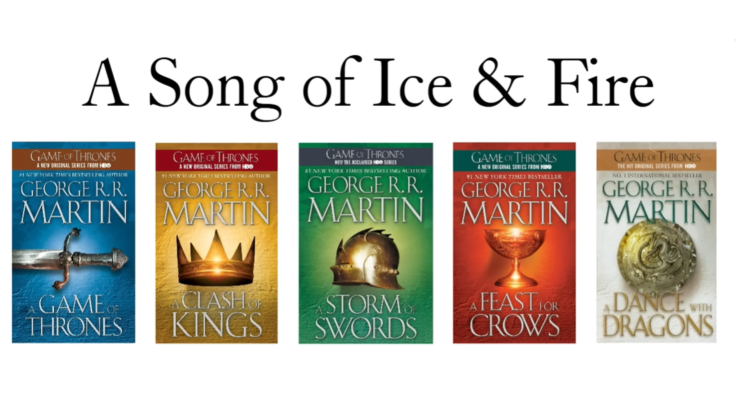The Winds of Winter Author George R.R. Martin Admits Book Is Late Because He Won't Quit TV
George R.R. Martin blames a packed TV schedule and travel for the 14-year delay of The Winds of Winter.

For fourteen years, fans of A Song of Ice and Fire have been waiting for winter. The sixth instalment, The Winds of Winter, has become one of publishing's most mythical and elusive books, with its release date a constant subject of speculation and memes. The last book in the series, A Dance with Dragons, was released on July 12, 2011, a gap that has now stretched past 14 years.
Now, author George R. R. Martin, 77, has finally provided a candid explanation for the monumental delay. The reason is not a simple case of writer's block; it is a fundamental conflict between the author's creative needs and the global success that his own stories created.

The Creative Fortress Of George R. R. Martin
In a recent interview with January Magazine, Martin confessed that his muse is a stationary one. He cannot write on the road, in hotel rooms, or on planes. His creative process is intrinsically tied to a specific location: his own office, a sanctuary surrounded by his personal books and 'artefacts' that allow him to fully re-enter the complex world of Westeros.
'I need my own place', he explained. 'I need my office and my settings. I can't really write except in my own space where I can get lost in the world I'm creating.' This need for total immersion has become the central bottleneck, as Martin's life is now anything but stationary.

The Celebrity Distractions Of George R. R. Martin
That crucial solitude has become the rarest commodity for Martin. The very success of his novels, and the global phenomenon of HBO's Game of Thrones, has transformed him from a reclusive novelist into a full-blown media mogul and celebrity. His schedule is now a relentless parade of the very travel he says prevents him from writing.
In the past year alone, Martin's commitments included major fan events like New York Comic Con and Worldcon in Seattle. He is also deeply involved in the ever-expanding 'Thrones' universe, attending multiple production meetings for HBO spin-offs House of the Dragon and A Knight of the Seven Kingdoms.
His creative energy is also being poured into a dozen unrelated projects, from producing AMC's Dark Winds (a critically acclaimed noir thriller renewed for a fourth season) and editing the long-running Wild Cards anthology series, to serving as a cultural consultant on a scientific de-extinction project. That project, with the firm Colossal Biosciences, recently made headlines for announcing the birth of genetically modified wolves, which the company has dubbed 'dire wolves'.

Fans Respond To George R. R. Martin's 'Top Priority'
This public admission has been met with a wave of online frustration and weary resignation. After his latest interview surfaced, social media users were quick to point out the irony. Despite Martin's insistence that The Winds of Winter remains his 'top priority,' his actions seem to tell a different story. His deep involvement as an executive producer on his non-Westeros TV shows and his expanding creative roles elsewhere are seen by many as the real reason for the delay.
Fans who have been waiting since 2011 are, understandably, cynical. One fan wrote that they had 'stopped caring years ago', while another joked that 'the real fantasy is thinking he'll finish it before the sun burns out.'
For a readership that began this journey in the 1990s, the patience has all but evaporated. The promise of closure now feels more like a myth than an eventual reality, and many have accepted that Westeros may never see its final, long-promised winter.
George R.R. Martin has laid out his paradox: he cannot write The Winds of Winter without the very solitude that his own monumental success has made impossible.
While he insists the novel remains his 'top priority,' his ever-expanding list of commitments—from multiple HBO spin-offs and producing Dark Winds to consulting on de-extinction projects—tells a different story to his long-waiting fans.
For the millions who began this journey, some as far back as the 1990s, the question is no longer 'when', but 'if.' Readers must now decide for themselves whether to keep waiting for a winter that may never come, or accept that the author's focus has permanently shifted from the page to the screen.
© Copyright IBTimes 2025. All rights reserved.





















